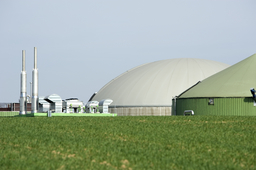Production and utilisation of energy round the world are changing, due to a combination of forces. Some of these changes are imposed (redistribution of energy needs and the Earth’s resources, measures that anticipate the depletion of fossil fuel sources); others are vountarily implemented (the search for energy autonomy, the fight against global warming and climate change, industrial competition).
France has launched a nation-wide debate on possible future policies in these areas. The National Academy of Technologies of France (NATF) — in its endeavours to gain the widest consensus possible on these thematics — sets out the technical data that will hopefully modulate the Government’s strategies up to a horizon 15 to 20 years ahead. This document is not as such a formal academic Advice Note and does not propose to make particular choices among the scenarios studied.
It is a first contribution of NATF to the ongoing debate, prior to defining strategic decisions and making comparative economic assessments. NATF investigated two evolutionary, almost contradictory, trends with close attention : the policy paths chosen respectively by the USA and Germany. This comparison provides some very useful information and food for thought.
The first certitude, in the case of France, is that demand must be controlled, energy saved and its utilisation improved. We can hope to decrease needs by taking measures such as installing more/better building insulation, including older buildings, encouraging the purchase of more efficient household appliances, meeting heating needs by direct heating, geothermy, recovered heat redistributed via urban networks, thermal solar panels, heat pumps, etc. New urban areas and cities must be (re)designed to be energy lean and require less commuting. We must not underestimate the difficulties in addressing these questions; none of them are new and the solutions will call for a high level of financial outlay and societal commitment.
If we consider the future of fossil fuels, it is the liquid phase fuels where competition will be strongest and will occur earliest. Use of fossil fuels must be ‘reserved’ for transport uses and for the chemical industry sectors. Cars and vehicles will
evolve towards models that will increasingly use electricity, at least in the case of hybrid vehicles and perhaps gas-driven models, but this per se will not represent an important energy source transfer by 2025. Industrialists will be led to stabilizing their energy requirements, by continuous product improvement.
Where production of electricity is concerned, the nuclear power capacity in service today in France will continue to be available, but might move to a lower power output. Improvements should be sought in terms of nuclear power flexibility, if only to avoid seeing the development of intermittent renewable energy sources (wind, sun) leading to an increase in use of fossil fuels. Problems associated with the intermittency factor for wind power and solar power are studied in detail below;
solutions do exist but they carry a higher price-tag. Current construction programmes in renewables energies (RENs) are sufficient if pursued at a steady pace. There is no need to go beyond summer-time peak demand since the excess energy produced would not easily find a buyer in summer-time. Nuclear power can prove useful to offset long intermittencies (outages due to low winds or overcast skies), hydro-electric generation (notably the ‘Step’ hydro pump storage installations)
the combined cycle gas turbine stations or the thermal (coal, oil or diesel fuel burning) power stations that are already commissioned can be used for short intermittencies.
To ensure overall power supply/demand balance, there is a clear need for increasingly “smart” grids.
No-break renewable energy sources (hydro-electric turbines, geothermy, biofuels, and biogas) must be developed. It will also prove vital to assure our energy procurement in the future, to assess the possible shale gas reserves accessible
within French frontiers.
Total decrease of energy consumption in France could attain –15% by 2025 and –30% by 2050.

